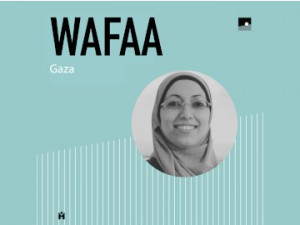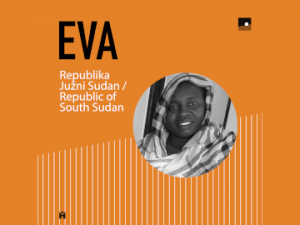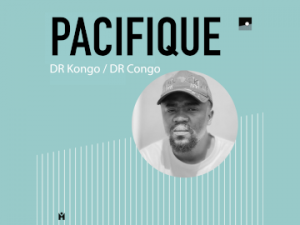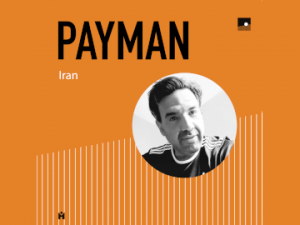Living Peace 16: Letters of Wars and Peace
28. 4. 2025 | Politics
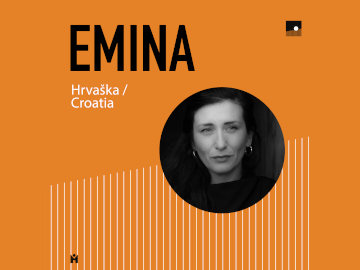
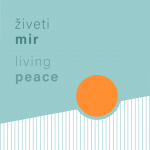 At the end of 2022, we at the Peace Institute, started organizing a series of public events entitled Thinking Peace as a response to the multitude of armed conflicts around the world. Since the world has been spiralling into dangerous global militarization, we wanted to rethink what is war, what is peace, and more importantly how to ensure a stable peace which would not be quickly engulfed in new conflicts and wars.
At the end of 2022, we at the Peace Institute, started organizing a series of public events entitled Thinking Peace as a response to the multitude of armed conflicts around the world. Since the world has been spiralling into dangerous global militarization, we wanted to rethink what is war, what is peace, and more importantly how to ensure a stable peace which would not be quickly engulfed in new conflicts and wars.
We want to expand on the Thinking Peace cycle and add new dimensions to imagining peace. With the help of amazing individuals worldwide, we are beginning a new series of public letters written by people whose lives were interrupted by war or who found themselves in a recent armed conflict. We have titled this series of letters as Living Peace to emphasize how important peace is and that people often only realize this importance when facing the brutality of war. We want to illustrate how people from Palestine, Ukraine, Rwanda, Bosnia and Herzegovina, Croatia, Serbia, Syria, Sudan, Afghanistan, Congo, Yemen and elsewhere think publicly about peace. How do the inhabitants of these regions face wars and military conflicts? What lessons can we learn from their intimate experiences and existential fears?
While opinions of world leaders who justify or even defend wars, dominate today’s media spheres, we want to amplify the voices that defend peace, reject violence and recognize equal rights for all. Having experienced war, they understand why it is essential to live in peace.
The 16th letter we are publishing was written by Emina from Croatia:
Palestine as an open wound and an inspiration for resistance. Palestine as a human, ethical, epistemic, pedagogical, material, and feminist question—because it is inherently a question of all freedoms and all solidarities. This struggle draws its power from community and from reaching toward distant horizons—and it cannot find its footing in antisemitism, nor in Croatian, Bosniak, or Serbian nationalism. It cannot survive in the narrow circles of white feminism, liberal wings, or disconnected enclaves. The struggle for a free Palestine is a struggle for bread, breath, and a future for us all.
***
Let us hold each other as we fight for a world where no child’s breath is stolen, where no life withers in the margins. Let us hold each other as we build the world we dream of—a world where healing is possible for all, where the past will not keep us bound, and where no one is left behind. This letter is no more than an appeal and no less than an inner scream.
LETTER BY EMINA FROM CROATIA
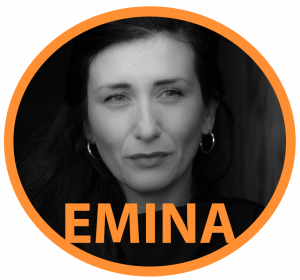 This letter is no more than an appeal and less than an inner scream. It has been a long time coming. The struggle within has been lingering—over whose eyes and ears I am writing for, how soft of landing it will have. I wrestle with whether I can speak my heartache freely, or if the peace and reconciliation establishments, heavy with mouthfuls, yet comfortable with tolerating the intolerable, will turn away.
This letter is no more than an appeal and less than an inner scream. It has been a long time coming. The struggle within has been lingering—over whose eyes and ears I am writing for, how soft of landing it will have. I wrestle with whether I can speak my heartache freely, or if the peace and reconciliation establishments, heavy with mouthfuls, yet comfortable with tolerating the intolerable, will turn away.
Palestine.
Palestine is the bruise of our time. A wound that refuses to close, that bleeds through every border, every decade, every history we thought we had survived. No past genocide, no war waged or endured, can be an excuse to look away. The weight of our own losses does not make this one lighter—it only makes our silence more unbearable.
Genocide.
I imagined a few points of departure in this writing. Each of them pushed me back into a place where my soul craves healing. How do I even convey over 30 springs, summers, falls, and winters that have passed—seasonal dreams of poppy fields and nightmares occupied with violent deaths, memories carrying the sound and smell of missile explosions, shivers with every thunder, and coiling into a ball with every quake? All these seasons, blossoming or gloomy, dreadful or energizing, screamed of war—the war that has never abandoned my bones and their fractures, the memory so strong in each cell and bloodstream.
Occupation.
Last night, I dreamt that I was holding a dead child in my arms. My child. His eyes were open, his face was covered in blood. There was no air coming out from his lungs. I woke up covered in sweat and reached out for my child. I put my hand on his tummy and felt his breath, his soft body. My sweet, loved, alive child. I held him tighter, as if the very act of holding him could reassure me that he was safe, that he was breathing, that the nightmare was just that—my nightmare. My nightmare, another mother’s living nightmare—one that stretches across borders, lives, and generations.
Death.
My letter comes from a bruised human and a mother, a living organism where precarious vulnerabilities and the power of lioness converge. A confluence that strips one naked and instills the energy of the strongest currents. A place that creates a warrior. A warrior against war. A place from which I ask you to teach your kids Palestine, to teach them about genocide and guns, to teach yourself refusal, to resist violence.
Resist.
I carried this weight with me to the feminist march, where I spoke under the night sky. How do we walk forward from where we stood that night? We marched with the knowledge that our feminist and freedom struggles are not moments to be commemorated but forces to be carried forward—lessons and practices that sharpen our strength to confront the darkness of our times. Not just the darkness imposed on us, but the one we carry within: our prejudices, our nationalisms and chauvinisms, our misogynies and racisms, our reluctance to listen, to engage in true dialogue. How loud and silent at once is the calling to free ourselves from judgment and closure, even or especially within the liberal spaces we have co-created? How often does this very liberalism narrow the political field for all our freedoms and living solidarities? In this appeal, in this bruised scream, I urge us to keep building a freedom movement that recognizes, embraces, nurtures all of our pains and dreads. And fights simultaneously against political, economic, and domestic violence. Against genocide and colonial devour in Palestine, Kashmir, Sudan, Congo, and Ukraine. Against razor-wire fences, the damming of rivers, the blasting of mines, and the constructions of the schools-prison pipeline. Our struggle is inseparable from resisting the violent pushbacks that force refugees into brutal survival, from standing tall against women’s rights hijack, from fighting for accessible education and lands free from corruption, from opposing the racial capitalism and slavery of migrant workers. It is our duty not to betray those on whose shoulders we stand and those whose freedom today depends on our voices and our presence. Feminism looks into the eyes and the soul—just as we face the stripped and wounded embroidery of Palestine. With feminism we build, love through, and learn from the wide array of freedom struggles. We cross borders and insist on dialogue. And so, among all the urgent places where our voices are needed, there is none more pressing than here and now—to speak of Palestine.
Palestine.
Palestine as an open wound and an inspiration for resistance. Palestine as a human, ethical, epistemic, pedagogical, material, and feminist question—because it is inherently a question of all freedoms and all solidarities. This struggle draws its power from community and from reaching toward distant horizons—and it cannot find its footing in antisemitism, nor in Croatian, Bosniak, or Serbian nationalism. It cannot survive in the narrow circles of white feminism, liberal wings, or disconnected enclaves. The struggle for a free Palestine is a struggle for bread, breath, and a future for us all.
Dream.
The dream stayed with me. A haunting reminder of the fragility of life, of the ever-present possibility of loss. In a world that too often forgets to value life, that too often sacrifices the innocent for the sake of power and privilege, this dream felt like a cruel echo of the world we live in. A world where children, where families, where entire communities, are left to die in the margins, unseen and unheard.
I know that the fight for my child, for all children, is not just a personal one. It is a collective one. It is a fight for the very breath of those who have been suffocated by systems of oppression, by borders that divide us, by ideologies that strip us of our humanity. My child is not just mine—he is the child of all of us. His life is intertwined with the lives of those who are denied the right to exist, to breathe freely, to grow in peace.
Let us hold each other as we fight for a world where no child’s breath is stolen, where no life withers in the margins. Let us hold each other as we build the world we dream of—a world where healing is possible for all, where the past will not keep us bound, and where no one is left behind. This letter is no more than an appeal and no less than an inner scream.

